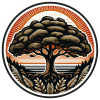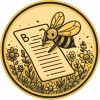Through a workshop held in July this year, a panel of 18 conservation scientists and 9 computer scientists and AI specialists, compiled a list of 21 most significant AI applications for nature conservation. They were asked to judge their own initial list of 104 applications on "potential to have an impact" and "likelihood of coming to fruition"
A good overview of the result can be found in this figure
An unfortunate outcome of the scan is that most of the top 21 applications go into the categories of ecological understanding and identifying threats, whereas only 2 go into implementing solutions. That is unfortunate because it by and large is quite clear what needs to be done to really address the issue of biodiversity and nature loss. We - the humans - just need to do it. How can AI help with that? I somehow don't believe that the two implementing solutions of prioritization and advising are going to create the needed revolution.
Another observation is that most of the applications can be summarized as bigger-and-better. Perhaps the panel is to blame for a lack of imagination, or perhaps the more imaginative ideas were filtered out by the second criterion of likely coming to fruition? The latter turns out not to be the case. I went through the list of 104 applications, and most of them fit the bigger-and-better summary.
Then again, depending on the scale, some bigger-and-better applications can make an essential difference. The one example that I can identify is taking in massive amounts of scientific and grey literature for a research purpose like summarizing the state of the art, listing all known facts and insights about a particular species. Up to ChatGPT that could only be done through decades of reading.
Moving on from the list of top 21 applications, I found the sections on negative consequences and the organization of conservation very interesting, perhaps more so than the actual list. The sections have lots of food for thought on North South relations, AI colonialism, militarization of conservation, loss of essential (field) skills in conservation, use of AI by malignant actors, and last but to me not least, the risk of AI drawing scarce funding away from other nature conservation interests.
On the latter, I would agree that this may happen. Not because of promises and possibilities of AI for nature conservation, although those will be the arguments put forward, but simply because it is the next new thing for funders to turn their attention to. It will be interesting to see the outcomes of the currently running WILDLABS State of Conservation Technology Survey ( if you haven't done so, then please participate )
However, even though funders might be interested in funding AI applications, as the authors point out, using AI requires quite some resources, which "may push AI beyond the current resources (financial and human) of conservation". Could it indeed be that AI gets out of reach of most funders in nature conservation? If so, what would that mean for the field, and for nature?
Reynolds, S.A et all (2024) 'The potential for AI to revolutionize conservation: a horizon scan' in Trends in Ecology & Evolution
All quotes are from the article's online version
Claimer: nothing in this article was written by AI or with the help of AI
13 January 2025 12:56pm
Thank you for this excellent summary, Frank. I agree with you that not enough is being developed on the implementation side, which is what is needed most. Last year, I concluded that the geospatial AI solutions offered, although highly touted, were not ready for prime time. Hopefully, this will change for the better in the coming year.

Frank van der Most
RubberBootsData
13 January 2025 1:30pm
In reply to VAR1
13 January 2025 12:56pm
Thank you for this excellent summary, Frank. I agree with you that not enough is being developed on the implementation side, which is what is needed most. Last year, I concluded that the geospatial AI solutions offered, although highly touted, were not ready for prime time. Hopefully, this will change for the better in the coming year.
Hej Vance, thank you for your praise, the link to your book, and the citation!







Vance Russell